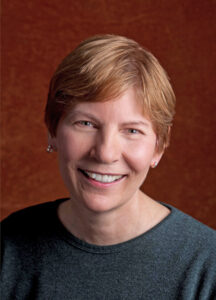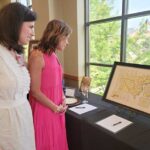By Kathy Berken
In the wake of the controversy surrounding the massacre at “Charlie Hebdo” for printing a caricature of Mohammad, we can be drawn into political quicksand rather than find solid ground for rational discourse. Many Muslims oppose visual depictions of their prophet and extremists have countered with violence in this case by killing 12 people.

My head is spinning from the whirlwind of thought.
As I absorb opinions by respected international leaders, politicians, and religious officials in media outlets such as “The Guardian,” “Commonweal,” “Time,” “BBC,” “New York Times,” NPR and PBS, I become more aware of how very different and passionate we can be around our beliefs.
No one seems to definitively answer pressing questions regarding the limits of free speech, using religious views to justify violence, understanding our human and legal rights and definitions of maturity and prudence. Contradictions abound. The colorful history of “Charlie Hebdo” alone tells me that the controversy and violence are not going to end any time soon.
After taking in as much as I could of the varied reactions, I picked up the January issue of St. Anthony Messenger noticing a section on Thomas Merton. I felt comforted in reading again about his call to nonviolence, which is born of strength, not weakness, as some of those who oppose the French newspaper’s actions have said of peacemakers.
Ironically, Merton was on FBI and CIA watch-lists because of his opposition to the Vietnam War and his support for civil rights in the 1960s. “Even though Merton took strong stands,” writes Dan Morris-Young, “he ‘strove to dialogue with those who did not share his convictions.’” Merton did not approve of some anti-war tactics such as pouring blood on draft cards, calling it unproductive as it “made hawks more hawkish.” He chose instead to be more like Gandhi, who said, “My enemy is my friend.”
Merton cherished St. Francis of Assisi’s approach instead. According to Morris-Young, in 1219 Francis crossed the battle line of the Fifth Crusade “to meet peaceably with Sultan Malek al-Kamil in Damietta, Egypt. Like Francis, Merton sought to reach out to his brothers and sisters of other faith traditions to learn from them but also to share the wisdom of his own Christian tradition.”
Understanding and dialogue are key here. We may likely always disagree about the line where the right to free speech impinges on the right to be respected, whether provocation ever requires retaliation, and when religious belief might trump cultural norms. Is there any way out of this maelstrom?
In a January 2012 article called “Thomas Merton, now more than ever” by Ken Butigan, at http://wagingnon
violence.org/, we discover within Merton’s “Hagia Sophia” an invitation to look deep into all things and find the light, the wisdom, Sophia. Merton asks us to find the sacred in everything: “This is at once my own being, my own nature, and the Gift of my Creator’s Thought and Art within me.” Fittingly, Merton became a spiritual advisor to international peace and justice movements.
But it was in his “Cold War Letters” that I believe the most profound statement of truth regarding the chaos and conflict in the world appeared. It’s this statement that speaks loudly and convincingly to the current crises surrounding the “Charlie Hebdo” situation. Butigan wrote it in response to “saber rattling” over Iran, but it still applies today: “As Merton wrote . . . : ‘Really we have to pray for a total and profound change in the mentality of the whole world.’ At this late hour, we are each called to this ‘total and profound change’ — which, like Hagia Sophia/Holy Wisdom, discerns the ‘hidden wholeness’ by which we are all connected — and, in turn, called to put this transformation into concrete, visible and profoundly nonviolent action.”
May we pray to find the wisdom to be understanding and peaceful in our actions, strengths born of our own experiences and faith rather than a perceived weakness born of fear and ignorance.
(Kathy Berken has a master’s degree in theology from St. Catherine University, St. Paul, Minn. She lived and worked at The Arche, L’Arche in Clinton (1999-2009) and is author of “Walking on a Rolling Deck: Life on the Ark (stories from The Arch).”)











